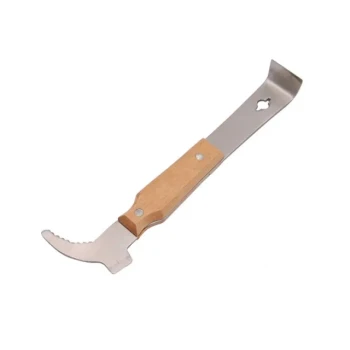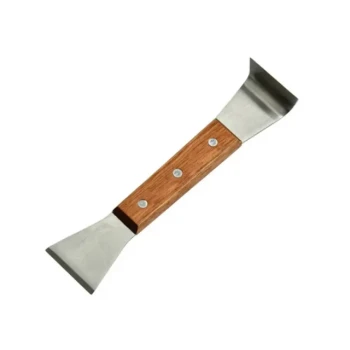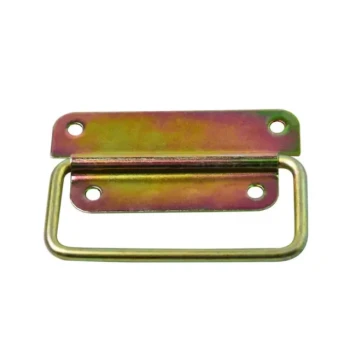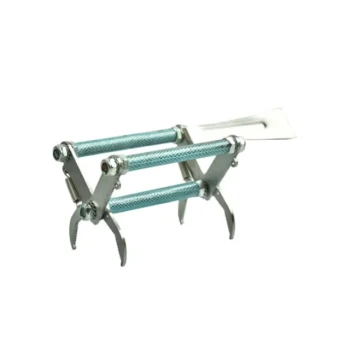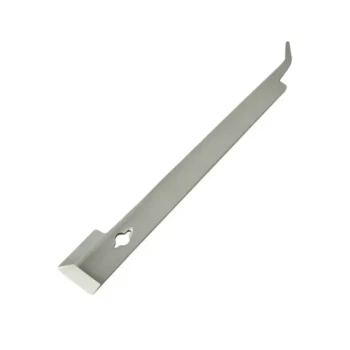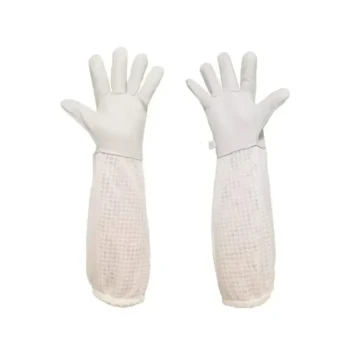In short, polystyrene beehives increase brood raising by providing superior thermal insulation. This allows the honeybee colony to maintain the stable, warm temperature required for larval development with far less energy, freeing up resources to raise more young bees earlier in the season.
The primary role of a polystyrene hive is not to actively create heat, but to passively preserve it. By minimizing heat loss, the hive allows the colony to dedicate its energy budget to population growth rather than mere survival, directly resulting in a faster and larger brood build-up.
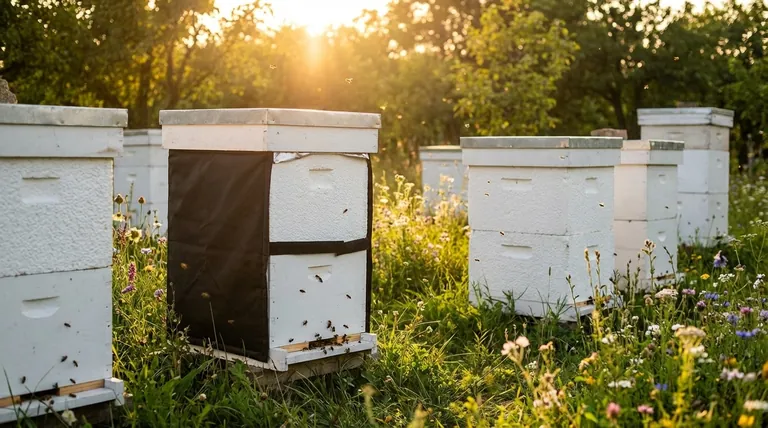
The Science of Insulation and Brood Rearing
To understand the impact of hive material, we must first look at the colony's fundamental needs. A honeybee colony is a superorganism that must tightly regulate its internal environment.
The Critical Brood Nest Temperature
The development of eggs, larvae, and pupae is critically dependent on temperature. Honeybees must maintain the brood nest at a constant 34-35°C (93-95°F).
If the temperature drops, development can slow, or the brood may die. If it gets too hot, the bees must expend energy and water to cool it.
How Polystyrene Achieves Stability
Polystyrene is a material with a very low thermal conductivity. Think of it like a modern insulated flask compared to a simple wooden box.
It acts as a powerful barrier, preventing the heat generated by the bee cluster from escaping into the colder outside air. This is especially crucial during late winter and early spring when outside temperatures fluctuate dramatically.
The Energetic Advantage
Maintaining the brood nest temperature requires a massive amount of energy, which bees generate by consuming honey and vibrating their wing muscles.
In a less-insulated wooden hive, much of this heat is lost to the environment. The colony must burn through its precious honey stores just to stay warm.
In a polystyrene hive, that same energy expenditure results in a much more stable internal temperature. The bees work smarter, not harder, conserving honey stores and dedicating their collective energy to raising the next generation of workers.
The Ripple Effect on Colony Strength
This thermal efficiency doesn't just impact brood numbers in isolation; it creates a positive feedback loop that strengthens the entire colony.
Faster Spring Build-up
Because the queen can start laying earlier and the colony can support more brood, the population explodes much faster in the spring. This is the single most significant advantage for honey production and pollination.
Increased Foraging Population
A larger population of worker bees emerging earlier means the colony has a massive foraging force ready to take advantage of the first nectar flows. More foragers mean more incoming resources, which in turn fuels even more brood production.
Improved Overwintering Success
The benefits begin long before spring. A colony in a polystyrene hive uses significantly less honey to survive the winter because it spends less energy on heating. This drastically reduces the risk of starvation, a primary cause of winter colony loss.
Understanding the Trade-offs
While thermally superior, polystyrene hives are not without their considerations. Objectivity requires acknowledging their potential downsides compared to traditional wood.
Durability and Handling
Polystyrene is lighter than wood, which is great for the beekeeper's back, but it can also be more susceptible to damage from hive tools or rough handling. It is more prone to dents and chips.
Pest and Damage Vulnerability
Rodents, badgers, and even wax moths can chew through polystyrene more easily than dense wood. Proper pest management and protective measures around the apiary are essential.
Moisture Management
Superior insulation can also trap moisture if the hive is not ventilated correctly. Excessive condensation can be harmful to the colony, so ensuring adequate top or bottom ventilation is critical.
Making the Right Choice for Your Goal
The decision between polystyrene and wood depends entirely on your climate, management style, and beekeeping objectives.
- If your primary focus is rapid spring build-up and maximizing honey crops, especially in colder climates: Polystyrene hives offer a distinct and proven advantage due to their thermal performance.
- If your primary focus is longevity and traditional aesthetics in a moderate climate: Wood is an exceptionally durable and repairable material that has served beekeepers well for centuries.
- If you are managing a large number of hives and need to minimize heavy lifting: The lightweight nature of polystyrene can significantly reduce physical strain.
Ultimately, understanding the thermal dynamics of a beehive empowers you to create the optimal environment for your colony to thrive.
Summary Table:
| Benefit of Polystyrene Hives | Impact on Brood Rearing |
|---|---|
| Superior Thermal Insulation | Maintains stable 34-35°C brood nest temperature |
| Reduced Energy Expenditure | Conserves honey stores, allowing more energy for brood care |
| Faster Spring Population Growth | Enables earlier queen laying and larger worker force |
| Improved Overwintering Success | Lowers risk of starvation, supporting stronger spring colonies |
Ready to boost your apiary's productivity with high-performance beehives?
HONESTBEE supplies commercial apiaries and beekeeping equipment distributors with durable, thermally efficient polystyrene hives designed to maximize brood rearing and honey production. Our wholesale-focused operations ensure you get the equipment you need to build stronger, more profitable colonies.
Contact HONESTBEE today to discuss your wholesale needs and discover how our beekeeping solutions can help your business thrive.
Visual Guide
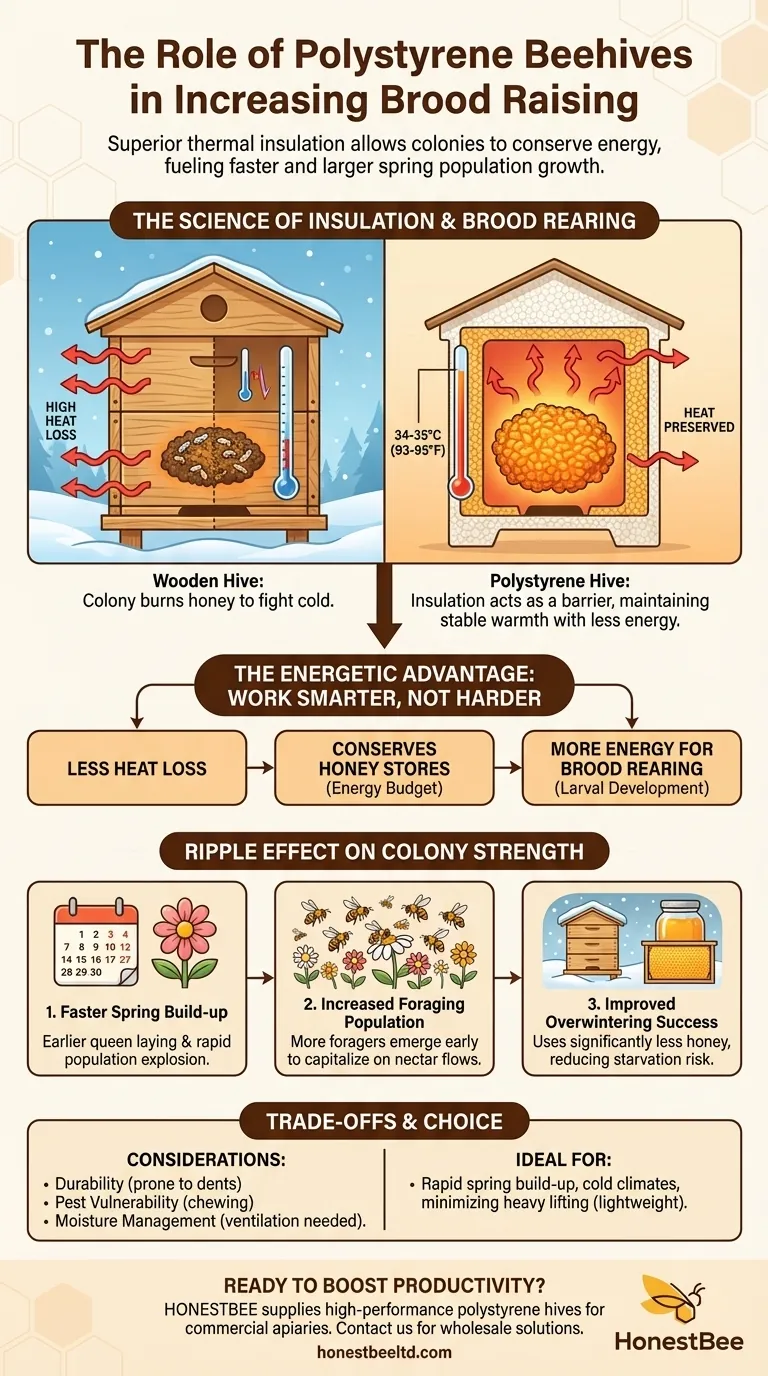
Related Products
- Professional Insulated Winter Hive Wrap for Beekeeping
- Professional Insulated Plastic Bee Hives
- HONESTBEE Advanced Ergonomic Stainless Steel Hive Tool for Beekeeping
- HONESTBEE Professional Long Handled Hive Tool with Precision Cutting Blade
- HONESTBEE Professional Multi-Functional Hive Tool with Ergonomic Wood Handle
People Also Ask
- Why are insulation wraps critical for outdoor honey bee wintering? Maximize Colony Survival & Energy Efficiency
- Why is it important to insulate beehives during winter? Boost Your Colony's Survival Rate
- What are the features of a waterproof and windproof hive wrap for winter? Protect Your Colonies from the Cold
- How does insulation help bee hives in severely cold weather? Conserve Energy & Ensure Colony Survival
- Why is it critical to keep beehive covers closed during the winter months? Protect Your Colony's Thermal Energy




